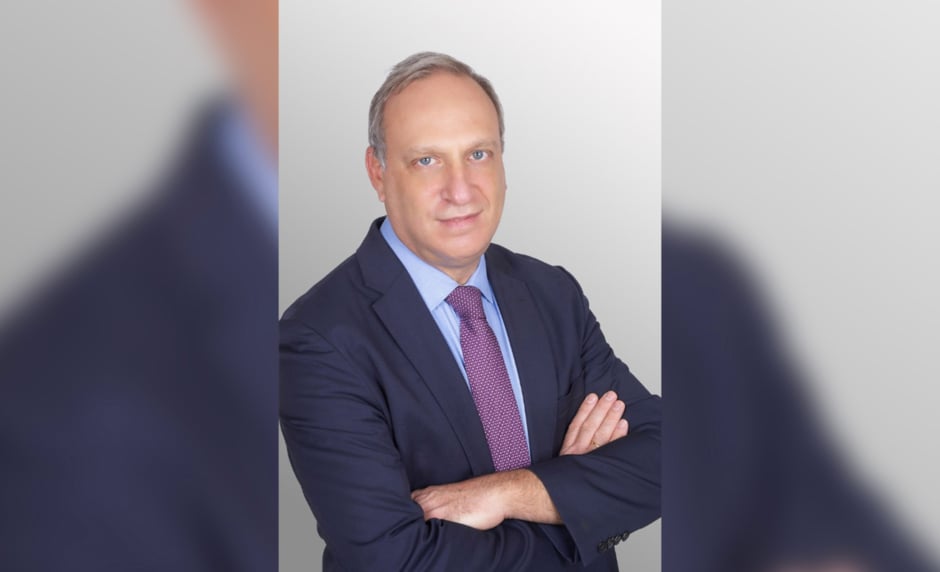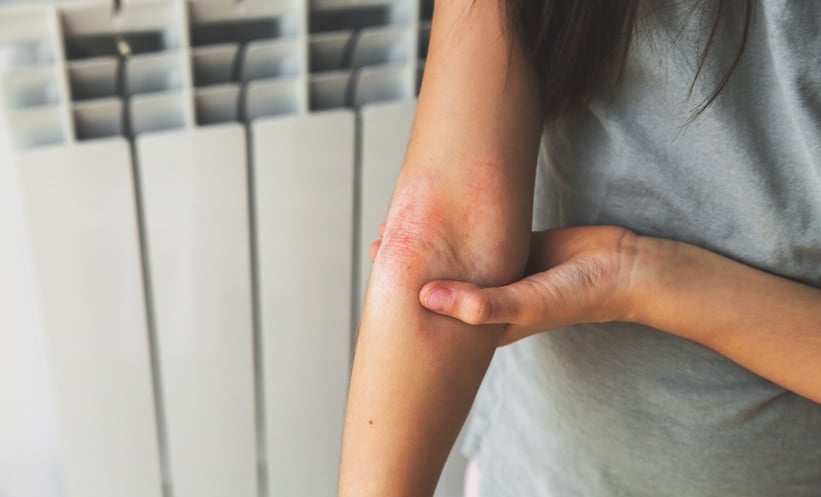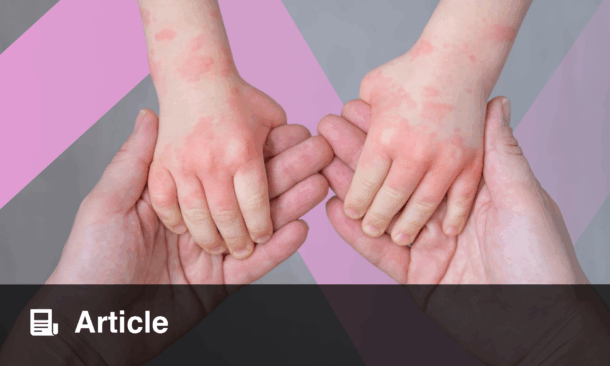Prof Alexander Stratigos | President, European Academy of Dermatology and Venereology (EADV); Professor of Dermatology-Venereology, University of Athens Medical School, Athens, Greece; Chair, First Department of Dermatology-Venereology, Andreas Sygros Hospital, Athens, Greece![]()
With over 25 years’ of experience in dermatology, what initially sparked your interest to pursue a career in this field and what motivates you to continue researching?
I became involved in dermatology for various reasons, but what really attracted me was the impressive range and diversity of the specialty. I remember as a medical student I was interested in different specialties, including surgery and paediatrics. When I rotated through dermatology, I became aware of the breadth of fascinating disciplines in which I could work. I could pursue clinical dermatology and at the same time practice dermatologic surgery. Or I could focus in paediatric dermatology or dermato-oncology. In other words, I could be involved in so many different fields under the roof of one specialty. I also started my career in dermatology at the time when research was unravelling the mechanisms of many skin diseases, a knowledge that has now been translated into a wide range of biologics and innovative therapies, which have significantly altered the way we treat our patients.
You undertook your education and training in both Greece and the USA, at the University of Athens and Harvard University. Are there differences in practice and training between the two regions, and how have your global experiences shaped your practice as a dermatologist and researcher?
I was privileged to receive my dermatology training in one of the most renowned academic centres in the USA. Working in clinic with the eminent Dr Thomas Fitzpatrick or interacting with masters such as Dr Sam Moschella and Dr Ernesto Gonzalez in clinical rounds, alongside many others, has been the highlight of my career. I not only learnt dermatology, but I was inspired to become a physician scientist, a mentor, and a trainer myself. Returning to Greece, I became faculty at the Department of Dermatology-Venereology at Andreas Sygros Hospital, the main referral institution for skin and venereal diseases with the largest residency programme in Greece. It was a unique opportunity for me to bring to this new environment all the didactic values and structured clinical care I had received through my training at Harvard. Overall, my experience from the USA and Europe has shown that, despite the different healthcare systems, patient care settings, and accessibility to medicines, there are more similarities than differences in the way we practice dermatology. And these similarities will become more pronounced in the future because of the increased connectivity and the diffusion of knowledge and expertise that occurs nowadays with continuous medical education activities.
Beyond your clinical work, you have a PhD from the University of Athens and a research fellowship in cutaneous photobiology and lasers from Harvard University. How has your scientific experience affected your clinical practice as a dermatologist, and how important do you think it is for future dermatologists to have formal research training?
I believe it’s very important to have a research background in any field one is involved with clinically, and this is what I encourage my younger colleagues to do. Research enables you to have an in-depth understanding of your clinical work and helps pose further questions that promote the field. The most important research questions often come from the clinical side. For me, research is part of my everyday activities and certainly one of the most inspiring parts of what I do. But regardless of whether one is actively involved in research or not, the practice of dermatology today requires a deep understanding of the underlying disease pathophysiology and pharmacology. For example, the proper clinical use of biologics in psoriasis or atopic dermatitis requires a broad knowledge of the immunology of these diseases and the mechanism of action of such agents.
You currently have over 280 international publications covering research in melanoma, psoriasis, and photobiology, among other dermatological conditions. What do you believe to be the current gaps in the literature?
There has been tremendous progress achieved in the fields that I have worked in over the years. For example, the way we manage psoriasis or melanoma today is so dramatically different to when I first started practicing dermatology and this has to do with the novel therapies and diagnostic technologies that we use, but also because patient care has become much more patient-centred, personalised, and multidisciplinary. However, I believe there are a lot of unanswered questions. Dermatology is full with many common and rare conditions, which cause a lot of suffering to our patients, and for which we do not know their aetiologies, pathophysiologies, or how to effectively treat these conditions. There is a need to expand research to a broader list of skin conditions for which our patients need better treatments.
Congratulations on your appointment as President of the European Academy of Dermatology and Venereology (EADV). What will be the focus of your term as EADV President, and what are you hoping to achieve in the role?
It is an honour to be president of the EADV, one of the most influential and prestigious academies in dermatology and venereology. My goal during my 2-year term is to strengthen the role of our Academy as the educational leader in dermatology-venereology and expand this role further in the digital era. Willingly or unwillingly, the coronavirus disease (COVID-19) pandemic will certainly be an important priority for next year, and the EADV will continue to support our members and colleagues so that they can deliver the best possible care to their patients in these unprecedented times. Based on the success of the first EADV Virtual Congress that took place a few weeks ago, we plan to develop and provide a comprehensive programme of webinars, online tools, and e-learning opportunities to help our members optimise patient care and improve their knowledge and expertise. We also want to increase our collaboration with other dermatology societies, as well as with nurse and patient organisations. Furthermore, as a leading professional society, it is essential that we have a very clear and long-term advocacy and public affairs strategy, and our plan is to become more systematically involved in the current European Union (EU) health initiatives.
The EADV Virtual Congress 2020 was held entirely online for the first time. What were your key learnings from the congress, and what research developments are you anticipating over the next year?
This year’s virtual congress was an exceptional meeting, offering a unique learning experience in an all-virtual frame. I think the one important lesson was discovering our capability to organise a successful meeting on an entirely virtual level, from choosing the platform to marketing the concept in a way that would excite audiences. I’d like to praise the work done by the EADV committees, departments, and operational teams in organising such an extraordinary event during these immensely difficult times. It took determination and flexibility and all of us had to learn new skills.
For the delegates, the congress gave the opportunity to explore the latest, cutting-edge developments in science and patient care in dermatology and venereology. The scientific sessions discussed the important topic of COVID-19, highlighting its impact on dermatology and venereology and how the pandemic has affected practitioners and patients. Several scientific sessions focussed on the treatment advances in psoriasis, atopic dermatitis, skin cancer, infectious diseases, and hair disorders, with all the new transforming medicines that promise to fulfil our patients’ unmet needs. Aside from the research developments in these areas, I anticipate a remarkable progress in several fields of relevance to dermatology-venereology, for example artificial intelligence, satellite power technology, teledermatology, and skin microbiome research. I trust that these areas with be hot topics of the 30th EADV Annual Congress next year, which I hope will take place as a face-to-face meeting in Vienna, Austria. It will be a wonderful opportunity to reunite after the pandemic.
In your work with medical students and trainee dermatologists, what advice do you give to those developing their skills and careers? Where do you hope they will take the field of dermatology over the coming decades?
I’m constantly surrounded by young colleagues and trainees, who inspire me with their enthusiasm and willingness to learn and to make a difference. What I would advise them is to focus on what really interests them; what makes them passionate in their professional or academic pursuits. Sometimes it is obvious, but in many cases it needs work and exploration. It’s important to channel this interest in constructive paths and also make sure to network with the right persons that will help guide your work and productivity.
I am very optimistic about the prospects of future dermatologists who will have a lot more tools and skills to deliver optimal care for their patients. Artificial intelligence, mobile technology, big data, and genomic medicine are all fields that will be gradually integrated to daily clinical medicine, offering higher standards of care and precision medicine. On the other hand, practicing in a highly digitalised world may create challenges for patient–physician relationships. It’s important to remember that medicine is not limited to disease management but also involves the healing of the patient. Thus, cultivating skills such as compassion, empathy, and ability to communicate are equally important to acquiring the knowledge and expertise of treating the disease.








